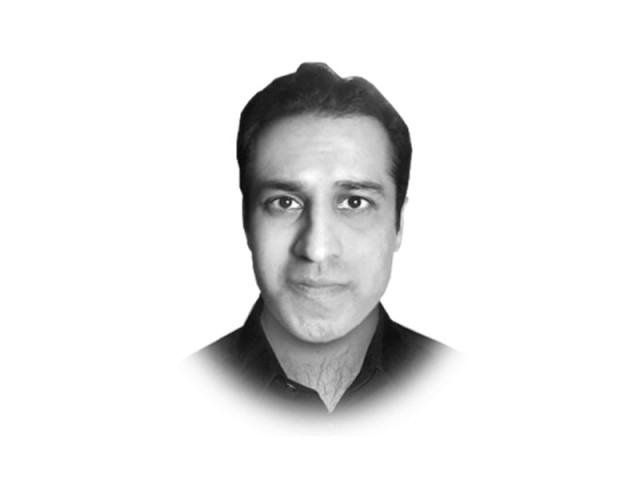The revolution is not being televised
In Pakistan, selective outrage on violence isn’t simply reflection of bias, ethical imbalance - it’s self-injurious.

But for all of Pakistan’s love of revolution — think of the exhortations of Altaf Bhai, Hassan Nisar and Imran Khan — and for all of Pakistan’s claims of affinity with the Arab world, the convulsions there have received little attention in Pakistan’s media, including its over 20 news channels.
In Syria, nearly 10,000 civilians have been killed in what looks awfully like a civil war, but remains at its core, an autocratic regime’s bloody quest for survival. Had the perpetrators been Israelis, not Arabs, Pakistani activists — particularly Islamists — would have flocked to the streets in protest. Yet, when we Muslims murder our own, there is a deafening silence.
Selective outrage isn’t unique to Pakistan. It’s a shortcoming of all human communities. American activists, celebrities, and politicians teamed up to campaigned against the Sudanese government’s crimes in Darfur and the predominantly Christian and animist south, which has since seceded. But where were they when Indian soldiers were killing and raping Kashmiri Muslims and when Russia was carpet bombing Chechnya? The tendency — and Bosnia and Kosovo are the exceptions — seems to be for the West to devote greater attention to crimes against humanity when Muslims are the perpetrators, and less so when Muslims are the victims of the violence at the hands of non-Muslims. In Pakistan, however, the selective outrage isn’t simply a reflection of bias or an ethical imbalance — it’s also self-injurious. Last month, jihadists in Miranshah killed 10 Pakistani soldiers, beheading two of them. The public outcry was muted.
While Pakistan is justifiably focused on getting an apology from the United States for the deadly Salala raid, why aren’t anti-state jihadists being put on the moral defensive and exposed for the hypocrites that they are? The Tehreek-e-Taliban Pakistan (TTP) Waliur Rehman Mehsud has called on Britain to observe the Geneva Conventions when treating Muslim prisoners, but his group is apparently exempt from these norms when it chops peoples’ heads off.
The fight in Fata and the Syrian civil war demonstrate the complexity of global conflict. The so-called clash of civilisations offers a flawed paradigm to view international relations. Muslims are at war with one another more than they are with non-Muslims. And overwhelmingly, the greatest victims of terrorism perpetrated by Muslims are Muslims.
Observing Syria’s bloodshed and the volatile transitions elsewhere in the Arab world might give Pakistanis a greater sense of appreciation for the political system they have. Yes, economic growth is anaemic, there appears to be neither law nor order, and corruption seems unending, but Pakistan’s democratic transition is both real and non-violent.
The rules that underpin the Pakistani system are being set legitimately and sustainably. They will hopefully offer the country the stability and predictability to its politics that is necessary for growth. The present parliament, which will serve most or all of its term, has passed the landmark Eighteenth, Nineteenth and Twentieth Amendments — all of which deal with systemic issues that the country’s politicians have avoided for decades. The PPP and the PML-N, with the support of the smaller parties, managed to pass these amendments despite an extremely tense political climate.
The two parties are learning how to play politics outside of a zero-sum game. The next (and most difficult) step is to apply that maturity to aspects of governance that directly impact the lives of Pakistanis. A strong electoral showing by the PTI could force the PPP and the PML-N to step up their game. There are also increased restraints on the exercising of power, thanks to the activist media and the Supreme Court. But at some point, the social utility of zeal declines; fortunately, as a result of the so-called Familygate, perhaps, the watchmen will be watched too.
In Syria and in most Arab countries, these restraints are absent. Indeed, what many Arabs aspire to is what Pakistanis already have: a more or less democratic system. Imperfect as it is, ask a Syrian fighting against Bashar al-Asad’s dictatorial rule and he might tell you he’d die to have a system as free and flawed as Pakistan’s.
Published in The Express Tribune, June 14th, 2012.














COMMENTS
Comments are moderated and generally will be posted if they are on-topic and not abusive.
For more information, please see our Comments FAQ